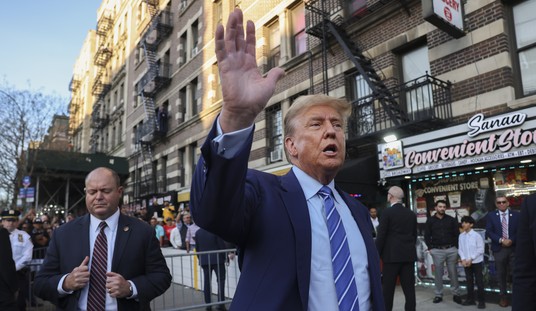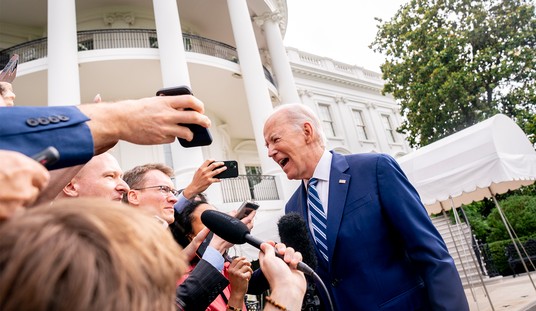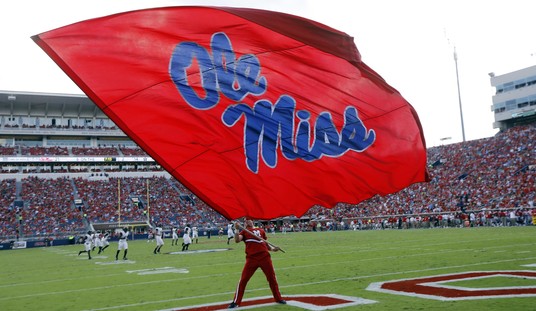Here’s why tomorrow’s Michigan primary is so important: it’s about establishment confidence in Mitt Romney and the last outside chance of getting another entrant in the race.
There are, as I’ve noted previously, a number of different types of “establishment” vs “grassroots” divides in the GOP, but you don’t have to have any particular definition of ‘establishment’ to recognize that Romney’s candidacy leans heavily on the support he draws from traditional ‘establishment’ or ‘insider’ sources: money from big-dollar fundraisers, endorsements from big-name elected officials, and covering fire from right-leaning journalists at major mainstream publications and conservative journals. Romney has depended, time and again, on his ability to get out of trouble by having the resources to go more negative than whatever opponent he’s targeting: more money to dump on negative ads and a bigger chorus of voices amplifying those attacks.
Aside from Mormon support – which is somewhat sui generis to Romney – some of Romney’s structural support comes from people who know him personally or identify with him as a fellow wealthy businessman; some comes from people who fear running a bold-colors conservative; and some comes from those who, whether or not they’d support a conservative in theory, fear Rick Santorum and Newt Gingrich as electoral liabilities, Santorum for his overly outspoken social conservatism, Newt for his long train of baggage. (It’s obviously Santorum who represents the more serious threat to Romney at present.) It’s the latter two groups whose loyalty Romney must retain.
But there have been significant signs that if Romney loses his home state, where he grew up and where his father was Governor, that support may at last start to crack. Elected officials not in the Santorum or Newt camps were increasingly vocal criticizing Romney after his tripleheader loss to Santorum earlier this month. There are reports that Romney’s fundraising may be ready to tap out, which would require him to increasingly self-finance. His polling among independents is poor, calling into question the whole “electability” rationale of his campaign. The clincher came ten days ago when ABC quoted an unnamed Republican Senator saying that if Romney loses Michigan, a new candidate is needed to avoid running Santorum:
“If Romney cannot win Michigan, we need a new candidate,” said the senator, who has not endorsed anyone and requested anonymity.
The senator believes Romney will ultimately win in Michigan but says he will publicly call for the party to find a new candidate if he does not.
“We’d get killed,” the senator said if Romney manages to win the nomination after he failed to win the state in which he grew up.
“He’d be too damaged,” he said. “If he can’t even win in Michigan, where his family is from, where he grew up.”
(There was similar talk when Romney seemed in danger of losing Florida to Newt Gingrich) Talk of this nature has quieted a bit as Romney’s polling improved in Michigan, but it could revive in a big way if he loses there, while continuing to trail badly in Ohio and Pennsylvania.
Such a response is, in my view, the last remaining plausible path to nominating someone other than the 4 candidates presently in the race.
There’s been a ton of talk about a race that is contested all the way to the convention, perhaps resulting in some sort of brokered deal to get a new candidate. Sean Trende (see here, here and here) has your must-read summaries of what makes such a convention possible, why it’s still unlikely and what the risks would be.
Color me skeptical, for reasons that overlap to a good extent with Trende’s. First, any sort of brokering will be done by and through the party machinery – the very folks who are already behind Romney, and would be the last ones to abandon him to a deal with Santorum or Newt. Second, while Santorum and Newt may have plenty of experience counting noses in Congress, a scramble for uncommitted delegates is likely to come down to the kind of horse-trading where money is the decisive advantage – and again, that means Romney (alternatively, power would rest with current officeholders, few of whom have backed Santorum or Newt). Third, any establishment figure who is open to a draft and would be a semi-credible candidate is likely someone who is already publicly behind Romney (eg, Chris Christie) or at least privately more favorable to him than to Santorum or Newt. Fourth, a candidate chosen so late in the game is bound to be unprepared, undervetted, not blessed by any choice of the voters, and in need of a ton of fence-mending with people who spent the whole spring and summer behind another candidate. I can’t see it happen.
For similar reasons, I don’t expect anybody else to get into the race now. The people who bowed out did so for various of their own reasons, and are unlikely to want to reconsider if it still means jumping in against Romney’s well-oiled attack machine. It’s not possible for a late entrant to get on enough ballots to get past 50% of the delegates, so we go back to the list above of reasons why Romney would win at a contested convention. There’s no time to build a new organization and new fundraising base in time to get in the race, unless the new entrant inherited one already in existence. And the not-Romney voting bloc, large as it is, would need to be convinced that a late entrant isn’t yet another ruse to allow Mitt to win on a divide-and-conquer strategy.
But there remains one and only one way, however unlikely, that this whole dynamic could change: if Romney drops out. Which he’s naturally not inclined to do, after running almost continuously for six years. But would his view change if a significant bloc of his support came to him and said it was time to back a new entrant – if his supporters concluded either that Romney couldn’t stop Santorum or would be too damaged goods to mount a serious challenge to Obama? I think it might, just as the view of someone like Christie might change if he was released from his endorsement of Romney and begged to enter to stop Santorum (who Christie clearly views as a disaster for the party). Even without the ability to win 50% of the delegates, a credible new entrant who started reeling off wins in the remaining contested states would be able to build an argument that the grassroots and the establishment have finally found a candidate they can agree on, creating a much stronger position to squeeze Santorum and Newt to get on board.
(I’ve used Christie as the most obvious candidate, but he’s not the only possible one among figures who can more plausibly bridge the gap between the various factions of the party but who chose not to run)
Is this a likely outcome? Probably not, even if Romney loses Michigan (it might have been more likely if he’d been blown out there, but that won’t happen). But it’s at least still a plausible path, and in my view the last plausible path to any outcome other than Romney or Santorum (or, far less likely, Newt) winning this thing the traditional way.













Join the conversation as a VIP Member